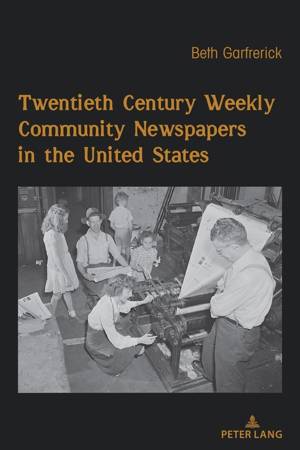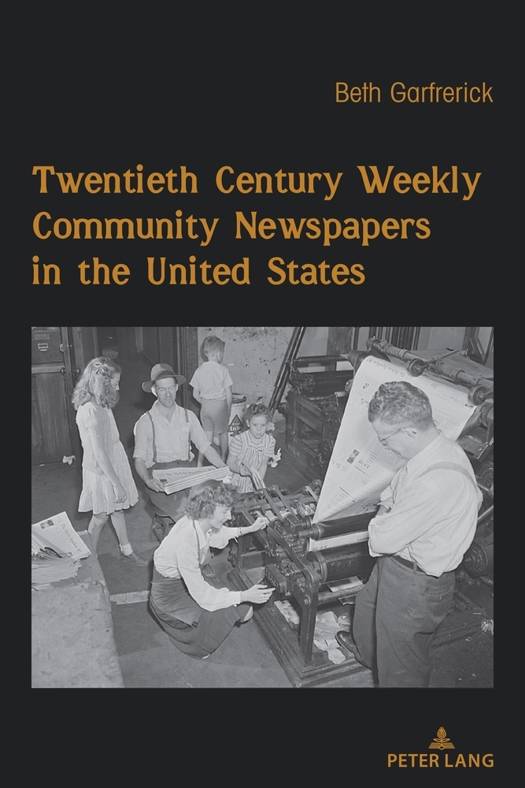
- Afhalen na 1 uur in een winkel met voorraad
- Gratis thuislevering in België vanaf € 30
- Ruim aanbod met 7 miljoen producten
- Afhalen na 1 uur in een winkel met voorraad
- Gratis thuislevering in België vanaf € 30
- Ruim aanbod met 7 miljoen producten
Twentieth Century Weekly Community Newspapers in the United States
Beth H GarfrerickOmschrijving
This book is an expansive history of community weekly newspapers in the United States during the twentieth century. It explores such topics as ownership, business practices, employees and hiring practices, educating college students to work for weeklies, community involvement, government propaganda campaigns in small-town weeklies, syndication services, community leadership, advertising and other revenue sources, and competition for audiences with the development of radio and television.
Weeklies told the story of average American daily lives more thoroughly and in a more personal manner than the big-city dailies. In essence, the weekly publisher-editor served as author of his community's life story. Despite the problems that faced the weekly industry throughout its long and proud history, the constants that remained were identifying and utilizing survival tactics. Throughout the twentieth century an obituary had been written for community weeklies, but they found a way to fight back and happen upon a means, a method, or a message that resonated with audiences and advertisers enough to allow them to keep their doors open.
Today, however, many community weeklies are shutting their doors after generations of family ownership. Chain-owned weeklies are also closing as media companies downsize for financial survival. These weeklies and their stories are a vital part of U.S. history. This book serves as a supplement to journalism and business history courses, or as a text for special topics courses. It is also of general interest to U.S. history buffs and current or former media workers.
"Beth Garfrerick has given us an important, seminal work. Most historians have ignored community newspapers. Prof. Garfrerick shows that they played vital roles in the lives of their readers. Her book is a major contribution to the study of journalism history."
--David Sloan, Founder, American Journalism Historians Association "
This book serves as an important corrective to the dominant narrative of American journalism, which has focused too exclusively on big-city dailies while ignoring the personal, grassroots journalism found in thousands of influential weekly newspapers around the country. It is a must-read for media scholars, who will appreciate Garfrerick's skill in uncovering these newspapers' economic strategies and historicizing their vital public role."
--Tracy Lucht, Professor of Journalism History and Women and the Media,
Greenlee School of Journalism and Communication, Iowa State University
Specificaties
Betrokkenen
- Auteur(s):
- Uitgeverij:
Inhoud
- Aantal bladzijden:
- 360
- Taal:
- Engels
- Reeks:
- Reeksnummer:
- nr. 22
Eigenschappen
- Productcode (EAN):
- 9781433197659
- Verschijningsdatum:
- 20/12/2023
- Uitvoering:
- Paperback
- Formaat:
- Trade paperback (VS)
- Afmetingen:
- 152 mm x 229 mm
- Gewicht:
- 494 g

Alleen bij Standaard Boekhandel
Beoordelingen
We publiceren alleen reviews die voldoen aan de voorwaarden voor reviews. Bekijk onze voorwaarden voor reviews.











